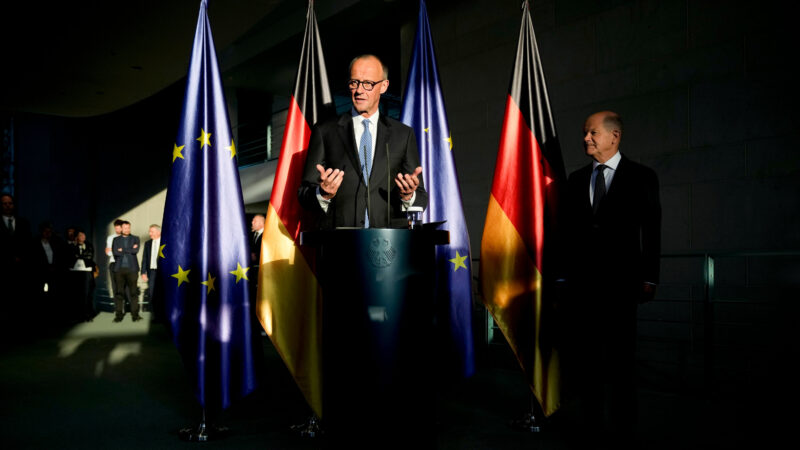Germany’s new chancellor, Friedrich Merz, launched his international diplomatic efforts Wednesday by traveling to France and Poland, signaling a renewed commitment to European cooperation on Ukraine and a shared stance against U.S. trade policies under Donald Trump.
Germany and France, historically central to the European Union’s cohesion and leadership, have seen their partnership tested recently by internal political challenges. Merz and French President Emmanuel Macron are aiming to revitalize this critical alliance amid growing pressures from Trump and Russian President Vladimir Putin, which are prompting a strategic reassessment within the EU.
Merz’s diplomatic outreach follows an unusual start to his chancellorship, as he failed to secure a majority in the first round of voting in the Bundestag—a first for any postwar German chancellor. He was elected in the second round.
Continuing a long-standing tradition, Merz is visiting key European neighbors on his first day in office to emphasize unity within the bloc. “The French-German motor,” as French Foreign Minister Jean-Noël Barrot described it, is something both governments hope to reignite during Merz’s meeting with Macron.
Barrot also noted that the relationship between Paris and Berlin is likely to become “simpler” under Merz, compared to his predecessor. France, in particular, is looking for German support on expanding EU defense budgets amid rising security concerns about Russia and uncertainty over the future of the transatlantic alliance under a potential second Trump administration.
Merz is scheduled to hold joint press briefings Wednesday alongside Macron and Polish Prime Minister Donald Tusk.



